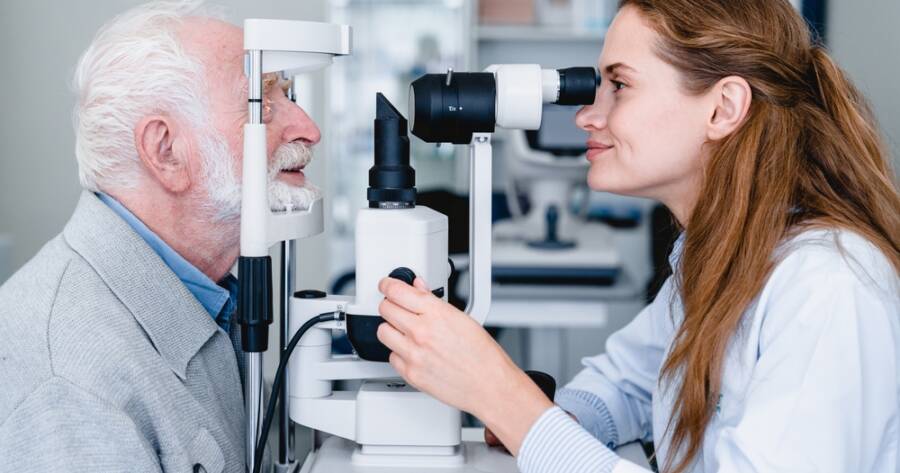Macular degeneration is a leading cause of vision loss, especially among older adults. This eye condition affects the central part of the retina, known as the macula, which is responsible for sharp, central vision. As the macula deteriorates, it can significantly impact daily activities like reading, driving, and recognizing faces. Knowing the signs, understanding its causes, and exploring available treatments can help manage the condition and preserve your quality of life.
What is Macular Degeneration?
Macular degeneration is a progressive eye disease that affects the macula, the central part of the retina responsible for detailed vision. This condition primarily impacts central vision, leaving peripheral vision intact. There are two main types of macular degeneration: dry and wet.
Dry macular degeneration is more common and progresses slowly, whereas wet macular degeneration, although rarer, can lead to rapid and severe vision loss due to abnormal blood vessel growth under the retina. The disease typically affects people over the age of 50, but its exact cause remains unclear.
Both forms of macular degeneration can make tasks like reading, driving, or recognizing faces difficult. While the condition does not lead to complete blindness, it can severely impair daily functioning. Early detection is crucial for slowing its progression and preserving vision.
The Warning Signs of Macular Degeneration You Shouldn’t Ignore
The early stages of macular degeneration may not present obvious symptoms, making regular eye exams essential. As the condition progresses, individuals may experience blurred or distorted central vision. One of the most common warning signs is the appearance of wavy or blurred lines, particularly when looking at grids or text. This effect is called metamorphopsia and is more noticeable when reading or viewing straight lines. Some individuals may also experience difficulty adjusting to low-light conditions or noticing a dark or empty spot in the center of their vision.
If you notice any of these symptoms, it is important to seek an eye exam as soon as possible. Early detection can help manage the disease through lifestyle changes or treatments, depending on the type and severity of macular degeneration.
What Causes Macular Degeneration?
The exact cause of macular degeneration is not fully understood, but several factors contribute to its development. Age is the most significant risk factor, with the condition commonly affecting individuals over 50. Genetics also play a role, as a family history of macular degeneration can increase the risk of developing the disease. Other factors such as smoking, high blood pressure, obesity, and a diet low in nutrients like vitamins C and E can also contribute to the progression of macular degeneration.
Exposure to ultraviolet (UV) light has been suggested as a risk factor, which is why wearing sunglasses that block UV rays is important. Research continues to explore the genetic and environmental factors that influence the development of this eye disease, with a focus on ways to prevent or delay its onset.
Treatment Options for Macular Degeneration
While there is no cure for macular degeneration, several treatment options can slow its progression and help manage symptoms. For dry macular degeneration, treatment focuses on slowing the disease and preserving existing vision. High-dose antioxidants and vitamins may help reduce the risk of further vision loss. Some studies also suggest that maintaining a healthy diet rich in leafy greens, fish, and fruits may be beneficial for eye health.
For wet macular degeneration, treatments like anti-VEGF (vascular endothelial growth factor) injections are often used. These injections block the growth of abnormal blood vessels under the retina, which helps reduce vision loss. Laser therapy and photodynamic therapy are also potential treatment options. Regular monitoring and early intervention are key to managing the disease and maintaining quality of life.
Looking Ahead: Managing Macular Degeneration
While macular degeneration can be a challenging condition, early diagnosis and the right treatment plan can help preserve vision and improve quality of life. Regular eye exams are essential for detecting early signs of the disease, and maintaining a healthy lifestyle, including a nutrient-rich diet and avoiding smoking, can slow its progression. With ongoing research and advancements in treatments, the outlook for individuals living with macular degeneration continues to improve, providing hope for better management and potential future breakthroughs.





